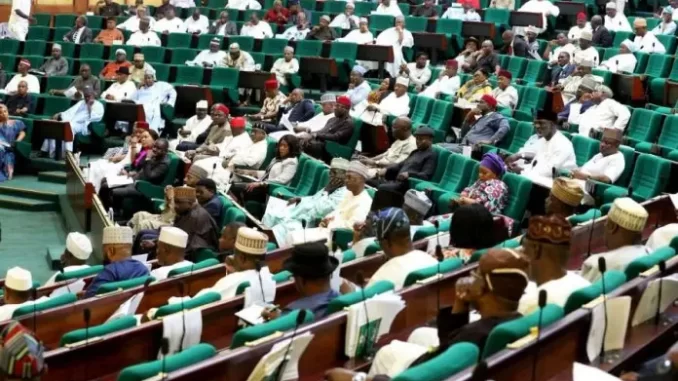For over 20 years, the International Telecommunication Union (ITU) and its allies in the larger international regulatory community have come a long way in assessing, charting, and comprehending the changing role that regulation plays in economies and society. ...Tap To Read The Full Story Here | ..Tap To Read The Full Story Here...
Through their efforts, the director, Telecommunication Development Bureau, ITU, Dr. Cosmas Luckyson Zavazava, said the world now has a clear-eyed view of the path ahead for all countries, no matter where they are, in their journey towards fifth generation (5G) collaborative digital regulation, or G5, that has emerged as the gold standard for regulators and policy-makers seeking to promote an enabling environment for digital transformation.
The G5 framework represents a significant change in focus from a restricted analysis of ICT and telecoms to a far wider analysis of each nation’s preparedness to take advantage of a fully functional digital economy and society, the director affirmed.
Taking the work one step further, Zavazava said ITU has developed a series of national country reviews on collaborative digital regulation, in partnership with government authorities, national stakeholders and recognised experts.
First launched in 2021, the series of collaborative digital regulation country reviews has been leveraging country-specific experiences in moving the global digital agenda forward and aligning it with the 2030 Sustainable Development Goals (SDGs).
The series also plays a central role in ITU efforts to measure the impact and benefits of G5 collaborative digital regulation, and support ITU Member States in their journey to achieving SDGs and inclusive, sustainable digital transformation through meaningful policy and regulatory reform that will benefit all.
Based on established evidence-based tools, the ITU ICT Regulatory Tracker and the ITU G5 Benchmark, the country reviews offer a comprehensive assessment of the regulatory and governance frameworks, policies, and practices in each studied country, Zavazava stated.
“The country reviews are an important tool for regulators and policy-makers as they work to create an environment that promotes investment, competition, digital innovation, protects consumers, and ensures that the benefits of digital transformation are widely shared. They highlight diverse experiences and different policy and regulatory patterns while exploring good practices, challenges and lessons learnt by regulators in navigating digital transformation.
“The country reviews also help develop a better understanding of the role and impact of collaboration and collaborative governance, and the use of new tools for regulating ICT markets.
“Each country assessment is unique in focusing on the specificities of national regulatory and institutional frameworks for digital markets to thrive and on collaborative governance. While all country reviews follow a similar methodology, the process of developing the study is necessarily highly collaborative and tailored to the country’s specific needs and priorities.
“For each country, the reviews capture hard-won gains, and provide actionable insights and pointers of immense value to other countries eyeing a similar path as they navigate the rapidly evolving digital landscape. Equally they deliver a practical and inspiring message of empowerment, of overcoming resistance and securing acceptance of the value of the work and of what it can deliver,” he further explained.
Nigeria’s scorecard
To this end, the recent ITU report, titled: “Collaborative Regulation: Accelerating Nigeria’s Digital Transformation,” has pegged Nigeria at 71 per cent, in terms of digital transformation readiness.
Advanced State of Readiness is benchmarked against four critical levels of accomplishments which include national collaborative governance, policy design principles, digital development toolbox, digital economic policy agenda, with Nigeria scoring 91 per cent in regulatory capacity; 82 per cent in Market Rules; 81 per cent in Collaborative Governance; 76 per cent in Legal Instruments for ICT/Telecom markets; 69 per cent in National Digital Agenda Policy, among other benchmarks.
Nigeria’s minister of communications, innovation, and digital economy, Dr. Bosun Tijani, unveiled the report conducted by the ITU and the Foreign, Commonwealth & Development Office (FCDO) of the United Kingdom and the Nigerian Communications Commission (NCC) in Abuja.
Nigeria was ranked among the top seven countries in Africa by BEMECS 5G Readiness Index, which measures the readiness of the continent to deploy and adopt mass-market 5G networks.
The report which was presented by ITU‘s Kagwira Nkonge at the Digital Economy Complex in Mbora, Abuja, to a cross section of key industry stakeholders including service providers, government agencies, representatives of multilateral institutions, West Africa Telecommunications Regulators Assembly (WATRA), Africa Telecommunications Union (ATU), among others, was also designed to complement existing cross-country benchmarks in which features of countries policy and regulatory environment are assessed.
The features of countries policy and regulatory environment are assessed according to the pillars of the Generations of Regulation frameworks which tracks telecom regulatory maturity towards digital transformation readiness, designated at G5 Advanced State of Readiness and for which Nigeria currently stands at G4.
Tijani, in his remarks at the event, commended the ITU and partner agencies and consultants that actualised the report; and expressed Federal Government’s commitment “to utilise this report as a navigational aid towards attainment of our regulatory objectives and policies outlines towards achieving a robust digital economy”.
“That is what we will continue to do as a government, ensuring that we can put ourselves in a place to have cutting-edge modern regulations in place to ensure that business is done properly in our sector and to ensure that, where possible, increase the local content of the sector as well,” he said.
Tijani noted that NCC has adapted over the years in response to how its role and mandate have changed. He explained, “Fifteen, twenty years ago, NCC was just regulating the telecommunications sector, today, NCC regulates the foundation for which any economy would be prosperous.”
The executive vice chairman of the Nigerian Communications Commission, Dr. Aminu Maida, who hosted the presentation, welcomed the indicators that promote effective regulation, attraction of greater investment, and development of innovative models for broader digital inclusion.
He emphasised that collaborative regulation would support Nigeria’s transition towards effective digital governance, evidence-based policy making and agile regulation in the nation’s digital economy.
Recommendations
As a leader in the region, already a G4 regulator, and at the G5 advanced state of readiness for digital transformation, Nigeria has the opportunity to pave the way to becoming a leading G5 country, embracing policy cohesion and lean governance, and unlocking the potential of digital transformation to deliver on the national development agenda.
The ITU report however stated that there is a gap in terms of implementation and monitoring and evaluation, or at least in terms of evidence thereof.
It recommended that policy implementation, as well as the implementation of policy design principles, which need to be maintained and protected, will ensure the participation of the industry, academia, and other non-governmental stakeholders.
“This will complement the already existing collaboration across government and will assist the Government of Nigeria to achieve its national policy objectives as set out in Nigeria national development plan and elsewhere,” it added.
Zavazava added by saying that, “I hope that this series will serve as a catalyst for further collaboration and the advancement of digital regulation globally. I recommend this study as an enlightening and practical tool together with our regulatory metrics to all national regulators and decision-makers as they work to achieve meaningful connectivity and accelerate an inclusive and sustainable digital transformation through regulation that is open, cross-sector, and above all, collaborative.”....For More READ THE FULL STORY▶▶



